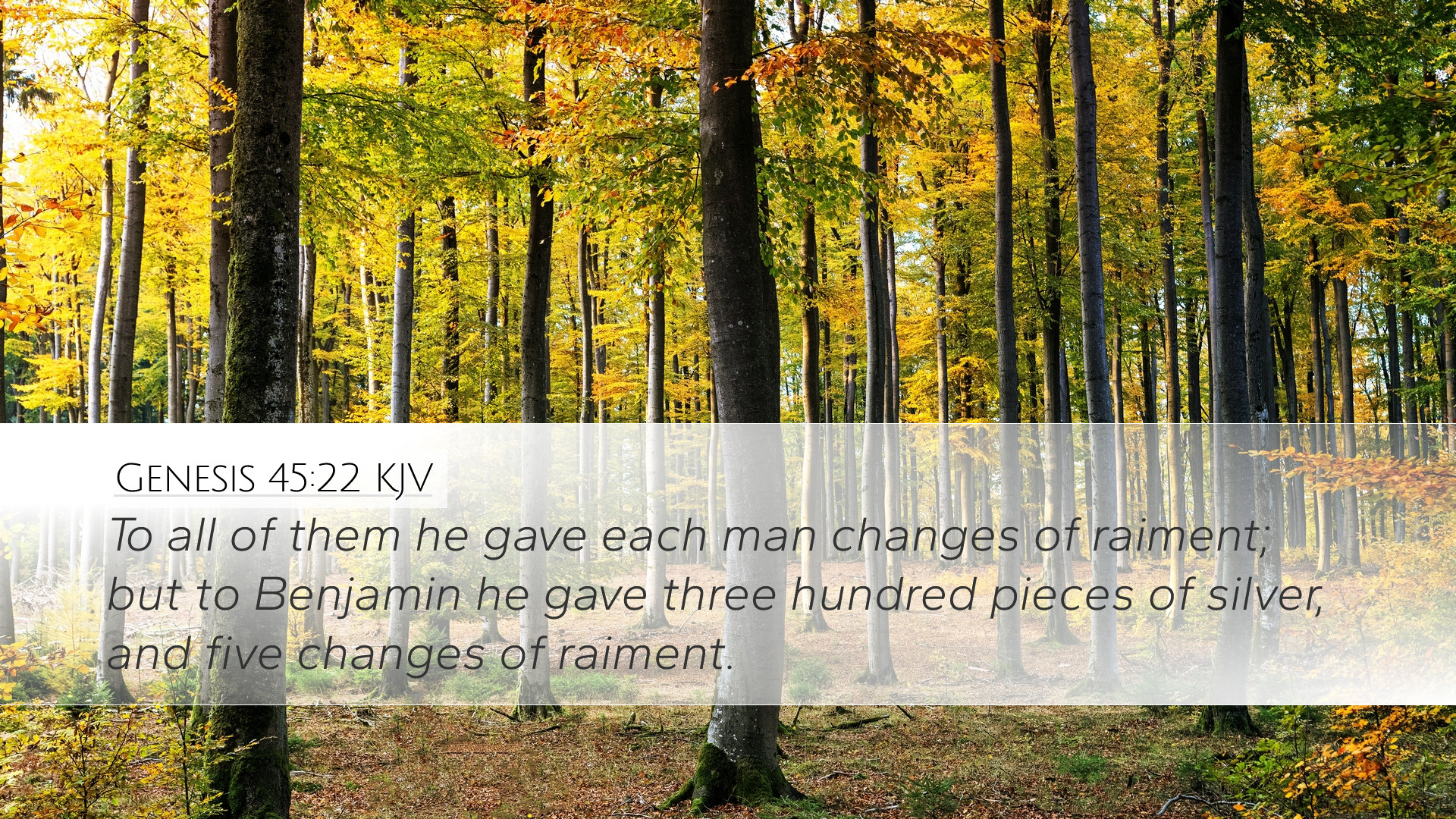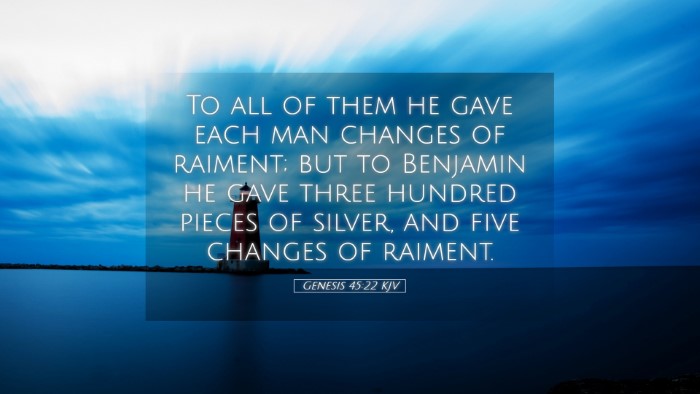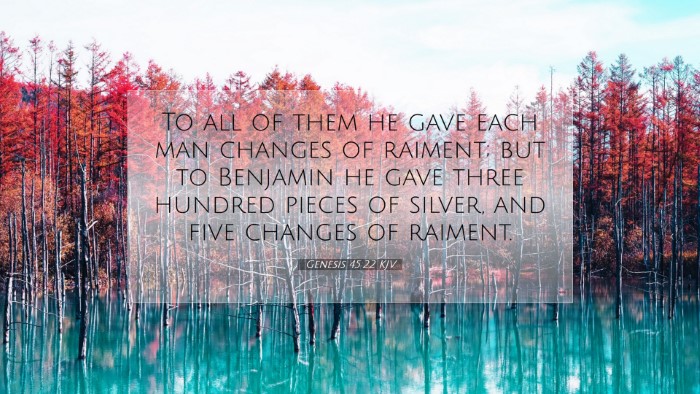Commentary on Genesis 45:22
Genesis 45:22 states, “To all of them he gave changes of raiment; but to Benjamin he gave three hundred pieces of silver, and five changes of raiment.” This verse encapsulates a pivotal moment in the narrative of Joseph and his brothers. It not only signals reconciliation and forgiveness but also serves as an important reflection on the themes of favoritism, blessing, and the complexities of family dynamics.
Context and Overview
This moment occurs after Joseph, who has risen to prominence in Egypt, reveals his identity to his brothers who had sold him into slavery. His emotional reunion with Benjamin, his full brother, highlights the deep familial bonds that persist despite betrayal. The gifts bestowed upon his brothers, particularly Benjamin, are rich in symbolism and significance.
- Changes of raiment: Garments often symbolize status and identity. In the biblical context, they frequently indicate the favor of the patriarch or the roles assigned within the family.
- Three hundred pieces of silver: This specific gift suggests not only favor but also an important connection to wealth and abundance, representing divine blessing and brotherly love.
- Five changes of raiment: The number five may carry connotations of grace and God’s favor, augmenting the meaning of Joseph’s generous actions.
The Theological Significance of Gifts
The act of giving in this verse serves multiple theological purposes:
- Restoration: Joseph’s gifts symbolize his desire to restore familial relationships and heal past wounds. This parallels God’s grace towards humanity, offering restoration and redemption.
- Favoritism and its implications: The preferential treatment shown to Benjamin echoes the earlier narrative of Jacob's favoritism towards Joseph. This raises critical questions about fairness and God's plan unfolding in the lives of each brother.
- Covenant blessings: The gifts can also be seen as a foreshadowing of the blessings of the covenant, emphasizing how God’s providence extends to all, yet sometimes focuses on a remnant.
Commentary Highlights
Matthew Henry
Matthew Henry notes that Joseph’s generous gifts represent a reconciliation with his brothers. He emphasizes that Joseph, having been greatly wronged, chooses to bless rather than to reprimand. This reflects divine grace, serving as a model for believers to follow when faced with betrayal and conflict.
Albert Barnes
Albert Barnes points out the importance of Joseph’s treatment of Benjamin. He interprets the gifts as expressions of Joseph’s love and the favored status of Benjamin, suggesting that they illustrate the human condition of jealousy and rivalry, highlighting how grace can overcome even deep-seated family conflict.
Adam Clarke
Adam Clarke further analyzes the significance of the numbers involved, particularly the wealth expressed in silver and the number of garments. He notes that Joseph’s outward demonstrations of love toward Benjamin contrast sharply with past actions of the brothers, bringing the narrative full circle and providing a powerful message of hope and restoration.
Implications for Modern Readers
For pastors, students, and scholars, this verse offers profound insights into the nature of forgiveness, the complexity of familial relationships, and the overarching themes of God’s provision and grace. The contrast between the actions of Joseph and his brothers serves as an important reflection on personal character under testing circumstances.
Conclusion
Genesis 45:22 is not merely a historical account; it carries timeless implications for contemporary life and faith. The gifts exchanged between Joseph and his brothers highlight the necessity of grace in relationships and offer a testament to the transformative power of reconciliation through love and generosity. It invites readers to consider their own familial interactions and the divine call to reflect God’s unconditional love in every aspect of life.


